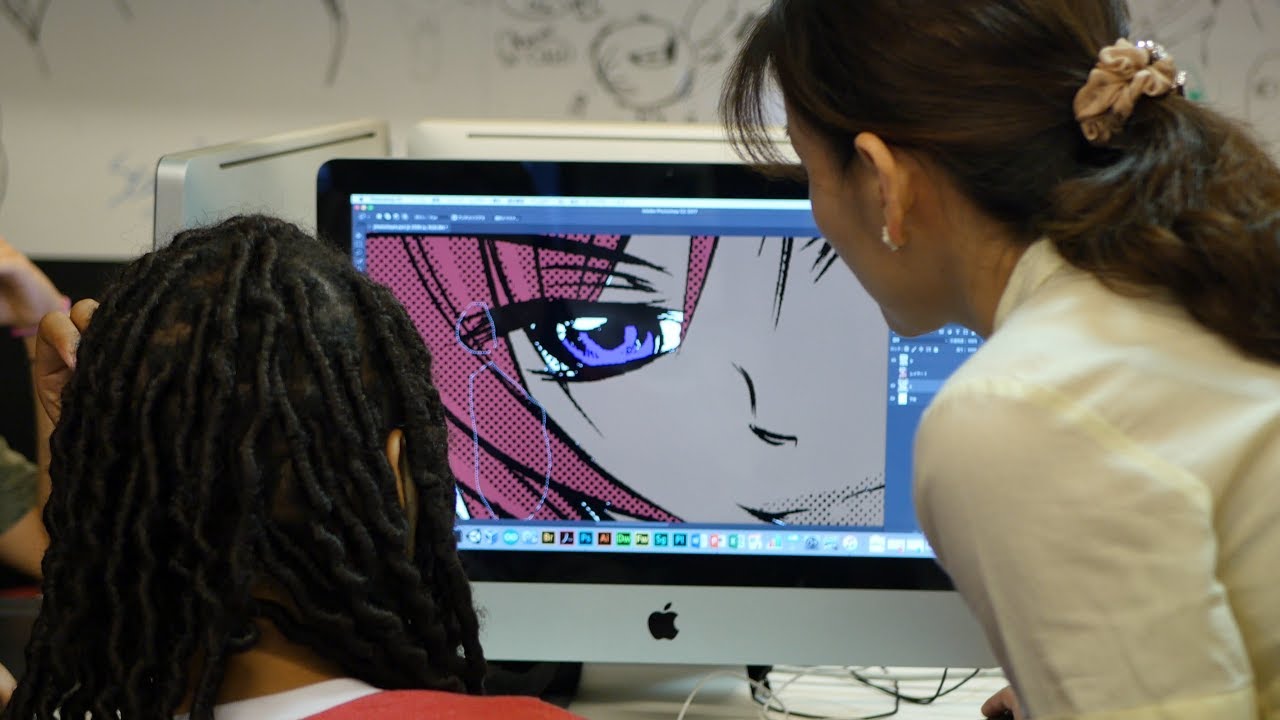
WHY STUDY ANIME AND MANGA IN JAPAN?
Learn from the best as you attend a reputable anime school in Tokyo, one of the safest and largest metropolitan areas in the world. Develop your artistic ability and style through classes taught in Japanese by design and animation professionals.
Practice animation techniques such as color blending with Copic markers; inking with fountain pens; and screen-toning, a method of applying textures and shades to drawings. Work on character development; then take your characters from paper to the screen through digital animation using programs like Photoshop, Adobe Premiere, and After Effects.
Immerse yourself in Japan’s pop culture with visits to vibrant neighborhoods. Play games in the colorful arcades in Akihabara, the city’s anime, manga, and tech district, or Ikebukero, known as the Pokémon Center. See the famous alternative street fashion of the Harajuku neighborhood.
Broaden your perspective on Japanese culture during home visits with local families. Spend time with peers by participating in local high school activities. Learn about Japanese history by visiting shrines and museums and take an excursion to Hiroshima and visit the historic Hiroshima Peace Park and Memorial Museum.
LEARN BY DOING
The Experiment’s programs are designed to build skills that will help you succeed. In Japan, you will learn:
TECHNICAL SKILLS
- Japanese language
- Digital animation
- Anime techniques, i.e., color blending, inking
INTERPERSONAL SKILLS
- Resourcefulness
- Intercultural communication and understanding
- Problem-solving
- Adaptability
- Relationship-building
KNOW BEFORE YOU GO
- Explore urban life by foot (lots of walking!) and learn to navigate the public transit system.
- Temperatures and humidity are extremely high during the summer.
- Meat, seafood, rice, and noodles are staples of Japanese cuisine and will require planning ahead for vegan and vegetarian diets. Your homestay family will be very keen to share many traditional foods and local and regional delicacies with you, and their preparation and your enjoyment of these will be a source of pride for your hosts. Culturally, it is considered very rude to your homestay family to leave food on your plate during meals, so adventurous eaters are appreciated.
- Access to the internet is limited and internet speeds and connectivity will vary.
- Japan is a conservative country regarding LGBTQ+ issues and you will find traditional gendered spaces, such as male– or female-only public/communal baths in the dormitories. We encourage students to approach the program staff for support on gender and sexuality questions and concerns.
- The diverse personal and social identities of participants may, in part, shape their experience abroad. In-country partners will discuss cultural norms and the local context during orientation. Please read our approach to Diversity, Equity, and Inclusion for further information. We take a collective effort for all students to have a safe space within the program spaces and with the local staff and group leaders.
- The Experiment program structure is rooted in experiential learning and cohort-based learning. The participant group experience is a major source of learning for Experimenters and is facilitated by trained Experiment group leaders.


